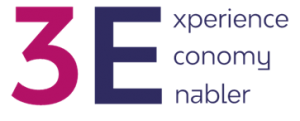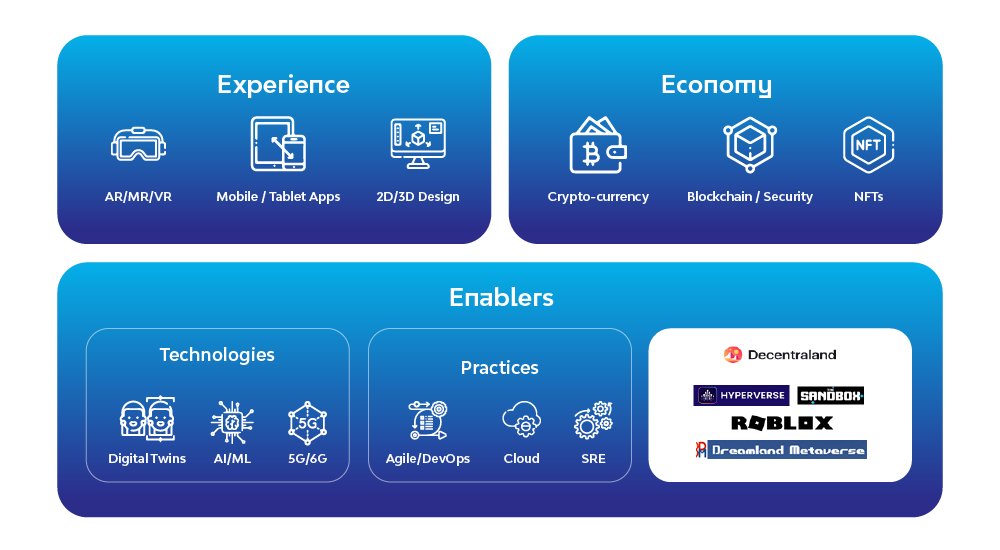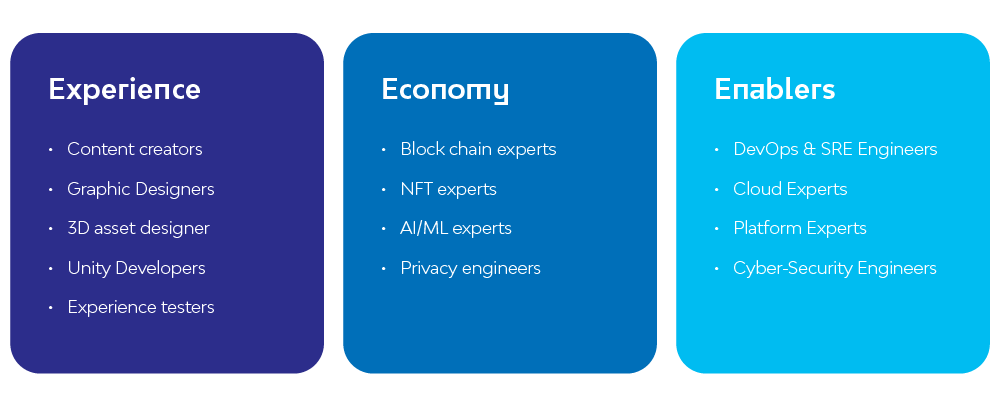Powering the Metaverse Ecosystem
The potential that can be harnessed from Metaverse is exponential. Metaverse promises to be the Virtual Platform of the Future—for interactions, collaborations, partnerships, and joint ventures. But to make this a reality, Metaverse needs a strong and viable technological ecosystem that will drive mass adoption.
Metaverse is already making waves in concerts like Fortnite’s Travis Scott Concert (Source: BBC). On November 19th, 2021, Justin Bieber, a prominent American artist, did a 30-minute Meta-universe concert on Wave’s virtual music platform (Source: Justin Bieber’s First Metaverse Concert). A first-of-a-kind music-themed world in Metaverse is on the cards by Warner Music Group and the Sandbox.
HSBC is collaborating with The Sandbox to acquire a plot of LAND, virtual real estate in The Sandbox Metaverse, which will be developed to engage and connect with sports, esports, and gaming enthusiasts (Source: The Sandbox).
Metaverse brings endless possibilities as a virtual platform, but there are constraints in having a practical technology backbone and ecosystem.
The Metaverse ecosystem broadly comprises technologies around Experience, Economy, and Enablers.
1. Experience
This includes technologies that aid in the creation, building, and realization of the immersive virtual world and encompasses:
- Devices
Wearables for augmented reality, virtual reality, mixed reality, and mobile. - Design
Software needed to create the 2D and 3D designs and objects required for Metaverse interaction. - Applications
Applications that act as a gateway for Metaverse. These could be accessed via mobile, tablets, or desktops.
2. Economy
The technologies in the economy support transactions in this integrated virtual world.
- Cryptocurrency
The buy-sell transactions in Metaverse are mainly through crypto-currency. While there are commercial transactions in traditional currencies, these are the exceptions rather than the norm. So, it becomes vital that there are solutions that will enable crypto payments. - NFT
Non-Fungible Tokens are data units that cannot be changed and are easily traded via blockchain. It becomes essential that one has software to assist in creating and real-time trading of NFTs. - Blockchain and Security
While both crypto-currency and NFTs have blockchain at their backbone, blockchain would also be used for security and privacy purposes.
3. Enablers
Enablers comprise technologies, practices, and platforms.
- Enabler technologies
This includes enabling technologies that assist in practical implementation. - Enabler practices
These are crucial for engineering solutions using Metaverse technologies. - Enabler platforms
These platforms provide Metaverse services to build curated Metaverses.
Metaverse is strongly dependent on its enabler technologies, practices, and platforms.
A. Enabler technologies
- Digital Twins
Digital Twins would aid in bridging the gap in the Metaverses where there is an element of bringing physical aspects into the virtual world. - 5G/6G
Today, the bandwidth and underlying internet infrastructure constrain the Metaverse experience. As the 5G/6G adoption multiplies, it will result in the ability of the devices to bring in edge computing and increased performance. - AI/ML
AI/ML today is embedded in nearly all the software implementations, and the same will continue for Metaverse too. It will be mainly helpful in embedding predictions, analysis, and recommendations. AI-assisted software will also play a significant role in making this an early reality.
B. Enabler practices
Enabler practices include technologies and techniques needed to build and maintain the Metaverse.
- Cloud
Metaverse solutions have a strong need and ability to adapt and expand. For example, some of the recent musical concerts hosted by Fortnite have attracted 10 Million+ attendees. This scale is possible only if the underlying software is hosted on the cloud. - Agile/DevOps
Metaverse is an evolving area and needs a lot of collaboration between engineers, designers, and business stakeholders to bring in quick results but in a fail-safe manner. This is possible with Agile and DevOps techniques that are used in engineering. - Site Reliability Engineering (SRE)
Site Reliability Engineering (SRE) is another crucial aspect because managing Metaverse solutions is about monitoring Service Level Agreements (SLAs) and looking at Experience Level Agreement (XLA) across various entities. This should include the entire spectrum of providers, right from platforms, applications, engineering, and infrastructure. An SRE mindset is needed to operate and manage such varied agreements.
C. Enabler platforms
Enabler Platforms provide services to create a quick and effortless curated Metaverse experience and economy solution instead of creating your own custom Metaverse experience from scratch. Some of the biggest Metaverse platforms like Decentraland, Somnium Space, Sandbox, and Roblox are heavily inspired by games and based on virtual asset transactions.
The last few months have been eventful for Metaverse, with new virtual buildings, events, games, branding opportunities, and promotional events cropping up every day. However, the relevance of these Metaverse platforms for businesses and industry usage is yet to be determined since their universe is often a fictional city and less complicated than the physical world.
From an enterprise applicability perspective, Metaverse needs to reimagine its position so that it compliments business objectives while promoting a great experience. It should enable a seamless transition to various personas (for example, a floor manager on weekdays to maybe a grocery shopper over the weekend).
LTI fueling the Metaverse setup
 LTI brings the “3E framework” for Metaverse to enable a faster setup of Metaverse for enterprises. LTI’s 3E framework brings together custom bespoke solutions for Metaverse from various technology stacks to support the areas of Experience, Economy, and Enablers.
LTI brings the “3E framework” for Metaverse to enable a faster setup of Metaverse for enterprises. LTI’s 3E framework brings together custom bespoke solutions for Metaverse from various technology stacks to support the areas of Experience, Economy, and Enablers.
This 3E framework can be easily implemented through our pod teams working with clients to implement their Metaverse use cases.
We have created experience pods for our well-known audit clients’ to build a solution for their advisors. Our economy pods are working with one of our financial clients to enable micropayments using blockchain technology.
Metaverse will be the platform for the future, and we must build a viable ecosystem through Experience, Economy, and Enabler technologies. It will enable creating personalized experiences across industries and domains, eliminating the physical and digital space lag. Metaverse will be the perfect shared, multidimensional digital space where worlds and brands collide to create a magical immersive experience.
More from Archana Joshi
Introduction Artificial Intelligence (AI) is transforming industries and redefining possibilities…
Today, generative AI or Gen AI is solving complex challenges that require data-driven insights,…
Latest Blogs
A closer look at Kimi K2 Thinking, an open agentic model that pushes autonomy, security, and…
We live in an era where data drives every strategic shift, fuels every decision, and informs…
The Evolution of Third-Party Risk: When Trust Meets Technology Not long ago, third-party risk…
Today, media and entertainment are changing quickly. The combination of artificial intelligence,…






